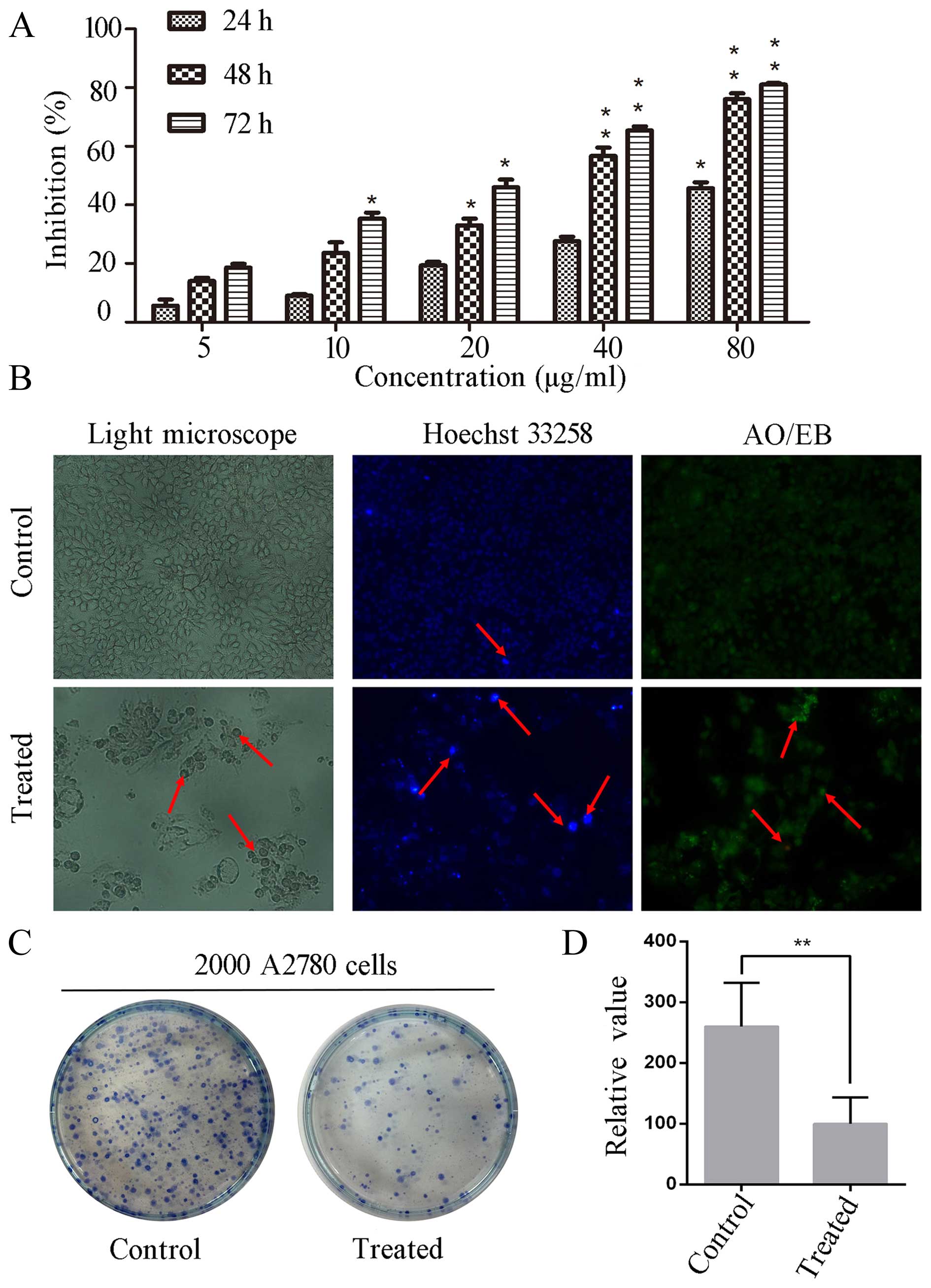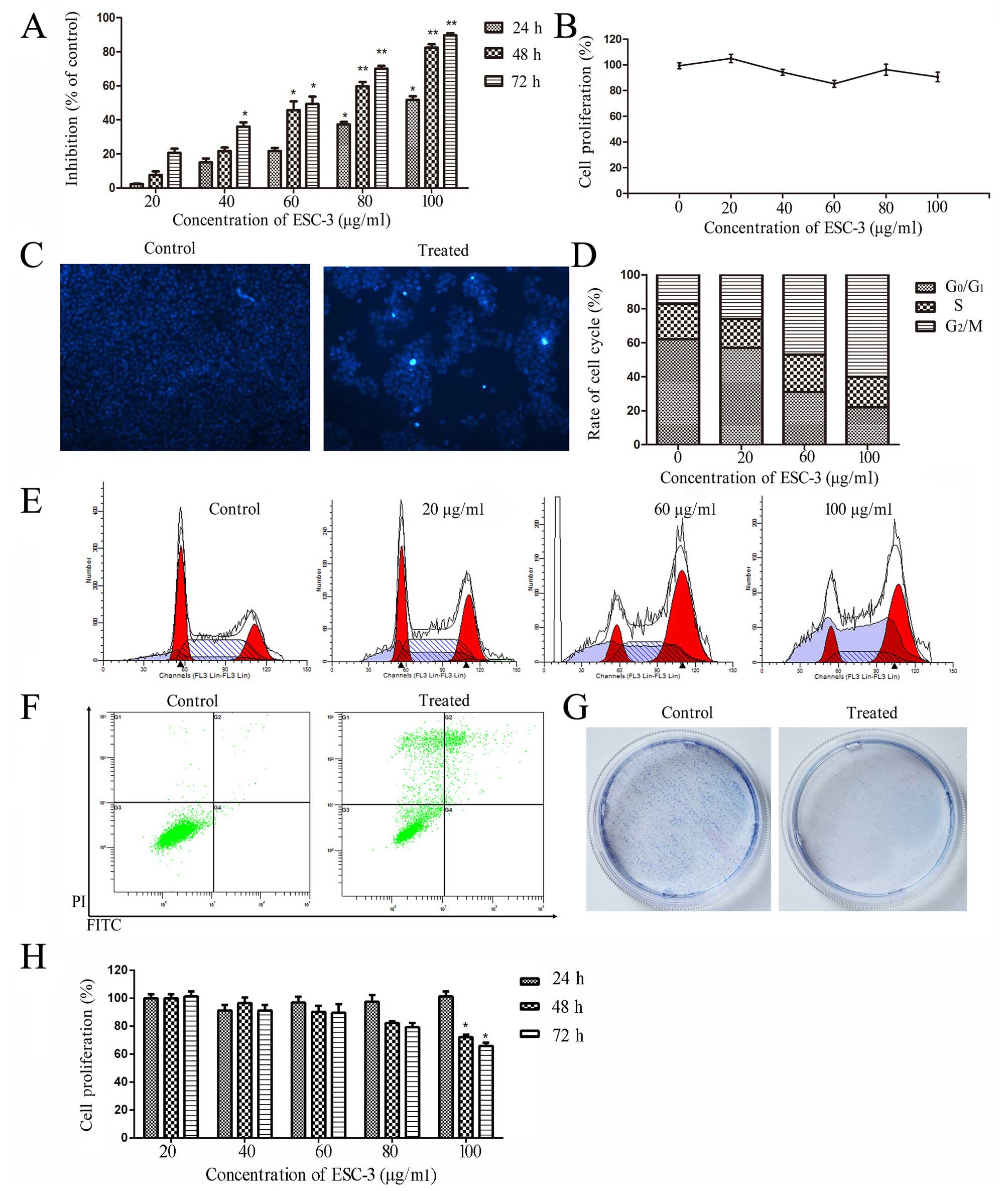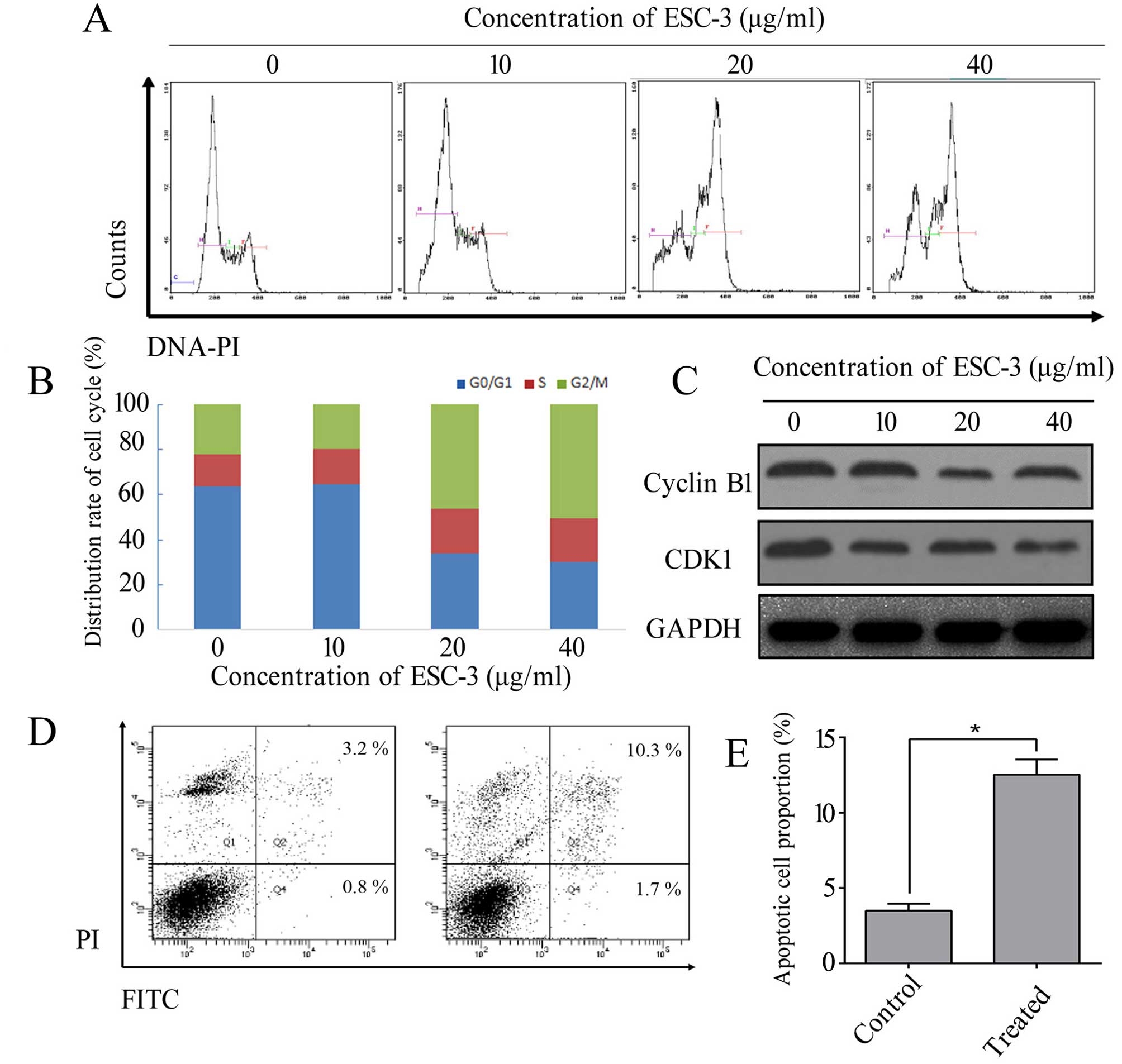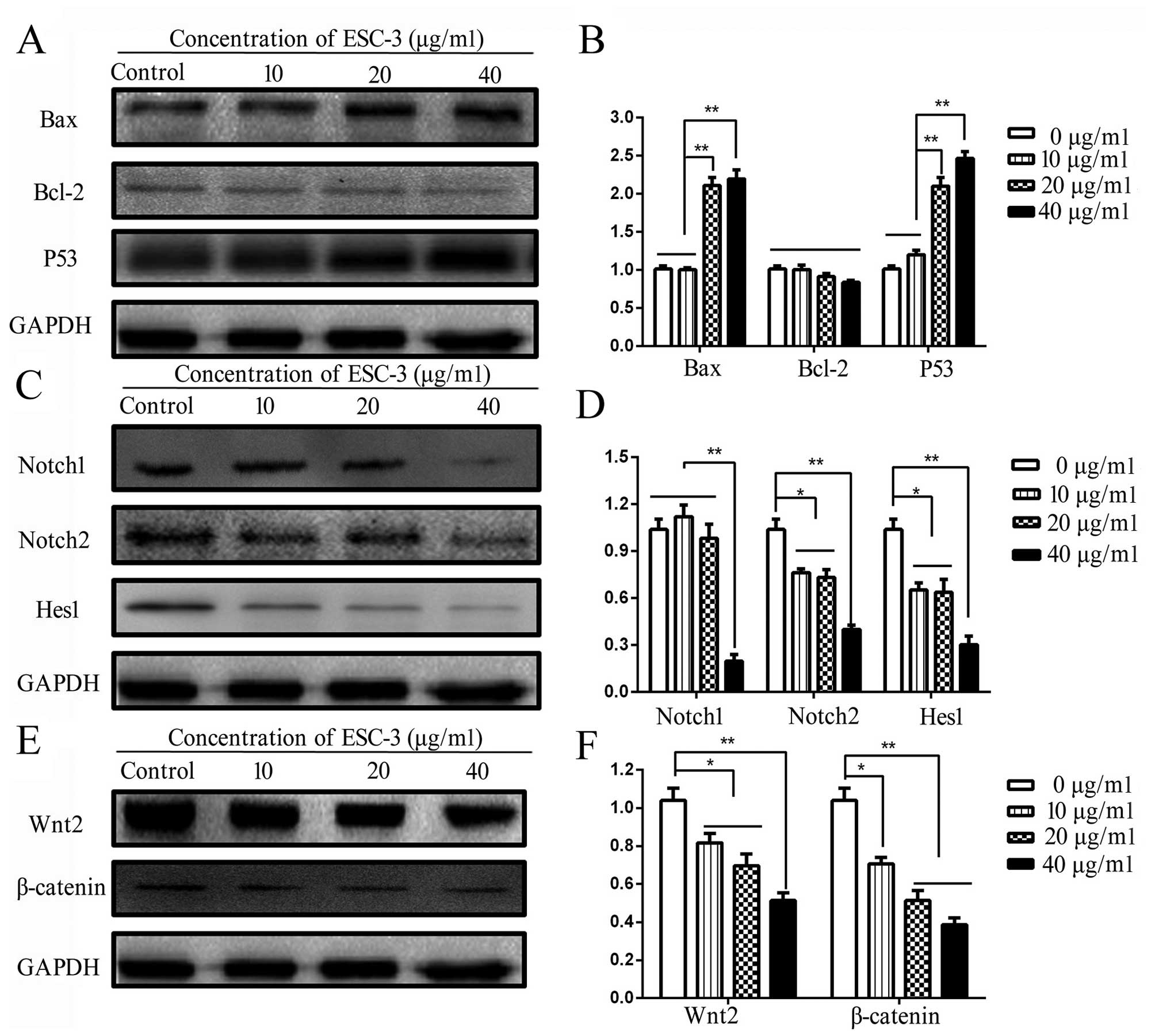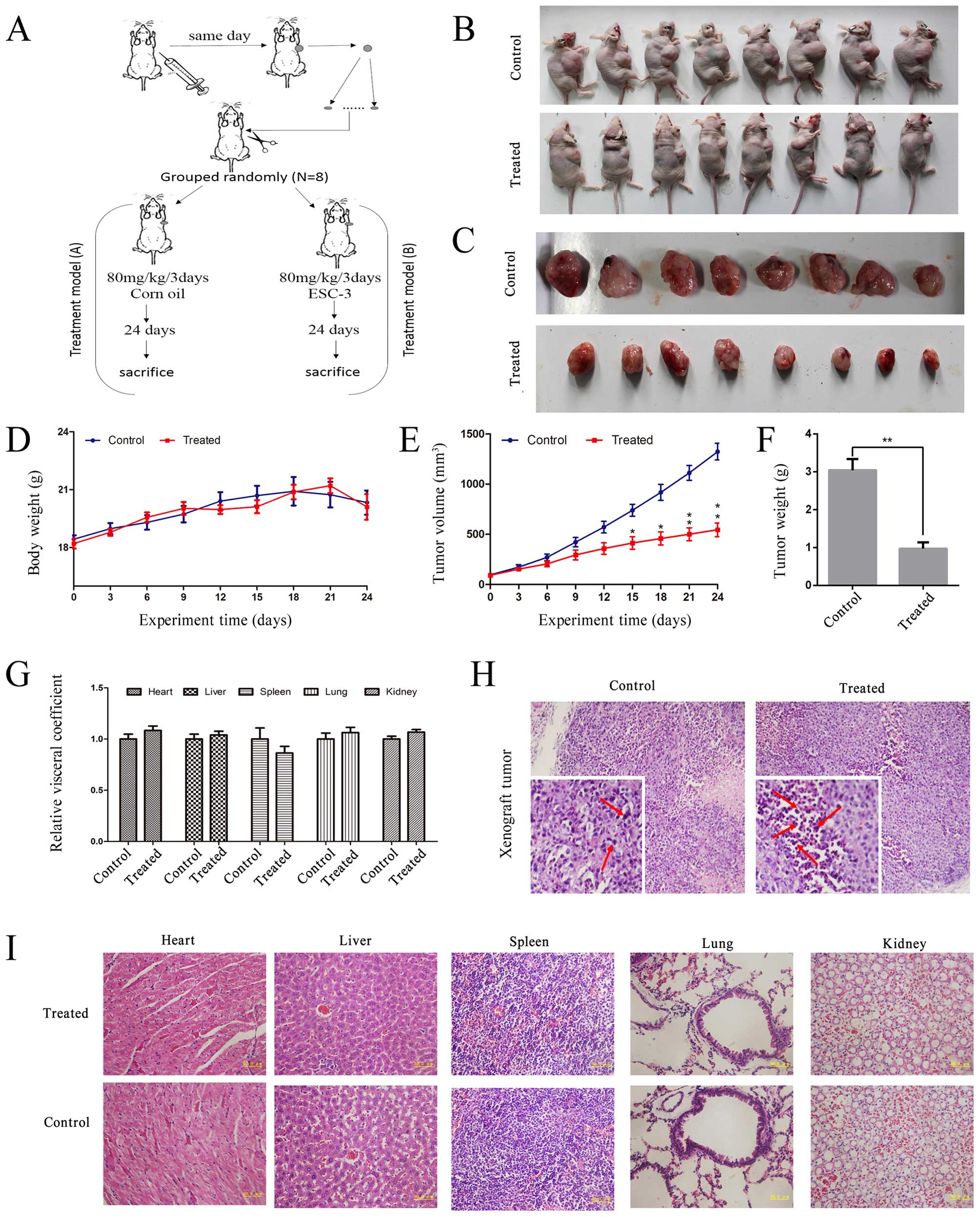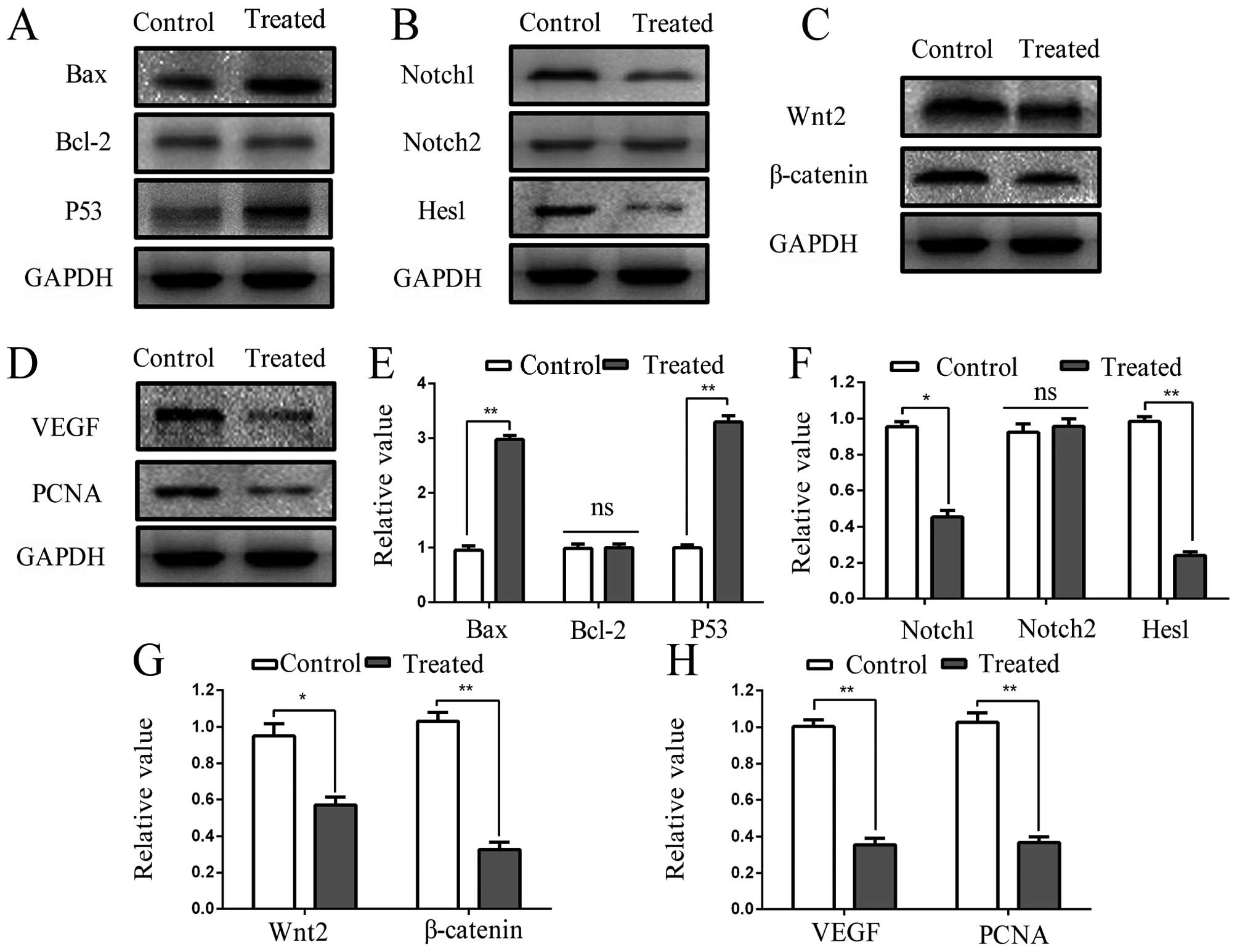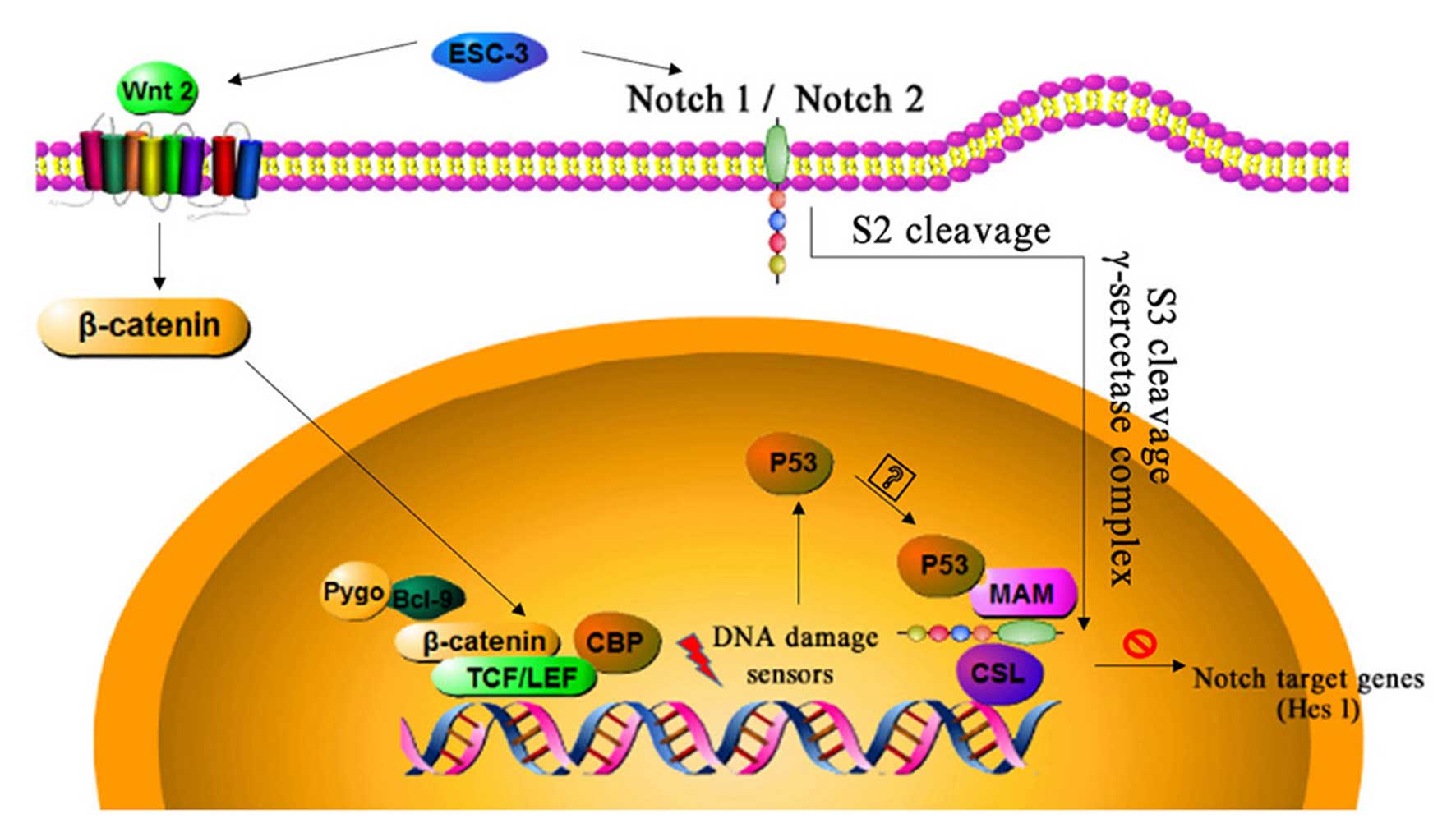|
1
|
Seidman JD, Horkayne-Szakaly I, Haiba M,
Boice CR, Kurman RJ and Ronnett BM: The histologic type and stage
distribution of ovarian carcinomas of surface epithelial origin.
Int J Gynecol Pathol. 23:41–44. 2004. View Article : Google Scholar
|
|
2
|
Siegel R, Ma J, Zou Z and Jemal A: Cancer
statistics, 2014. CA Cancer J Clin. 64:9–29. 2014. View Article : Google Scholar : PubMed/NCBI
|
|
3
|
Vaughan S, Coward JI, Bast RC JR, Berchuck
A, Berek JS, Brenton JD, Coukos G, Crum CC, Drapkin R,
Etemadmoghadam D, et al: Rethinking ovarian cancer: Recommendations
for improving outcomes. Nat Rev Cancer. 11:719–725. 2011.
View Article : Google Scholar : PubMed/NCBI
|
|
4
|
Matsuo K, Lin YG, Roman LD and Sood AK:
Overcoming platinum resistance in ovarian carcinoma. Expert Opin
Investig Drugs. 19:1339–1354. 2010. View Article : Google Scholar : PubMed/NCBI
|
|
5
|
Wang Y and Morrow JS: Identification and
characterization of human SLP-2, a novel homologue of stomatin
(band 7.2b) present in erythrocytes and other tissues. J Biol Chem.
275:8062–8071. 2000. View Article : Google Scholar : PubMed/NCBI
|
|
6
|
Tint GS, Dayal B, Batta AK, Shefer S,
Joanen T, McNease L and Salen G: Biliary bile acids, bile alcohols,
and sterols of Alligator mississippiensis. J Lipid Res. 21:110–117.
1980.PubMed/NCBI
|
|
7
|
Yeh YH, Wang DY, Liau MY, Wu ML, Deng JF,
Noguchi T and Hwang DF: Bile acid composition in snake bile juice
and toxicity of snake bile acids to rats. Comp Biochem Physiol C
Toxicol Pharmacol. 136:277–284. 2003. View Article : Google Scholar : PubMed/NCBI
|
|
8
|
Song W, Li SS, Qiu PP, Shen DY, Tian L,
Zhang QY, Liao LX and Chen QX: Apoptosis induced by aqueous
extracts of crocodile bile in human heptacarcinoma SMMC-7721. Appl
Biochem Biotechnol. 170:15–24. 2013. View Article : Google Scholar : PubMed/NCBI
|
|
9
|
Song W, Shen DY, Kang JH, Li SS, Zhan HW,
Shi Y, Xiong YX, Liang G and Chen QX: Apoptosis of human
cholangiocarcinoma cells induced by ESC-3 from Crocodylus siamensis
bile. World J Gastroenterol. 18:704–711. 2012. View Article : Google Scholar : PubMed/NCBI
|
|
10
|
Song W, Tian L, Li SS, Shen DY and Chen
QX: The aberrant expression and localization of prohibitin during
apoptosis of human cholangiocarcinoma Mz-ChA-1 cells. FEBS Lett.
588:422–428. 2014. View Article : Google Scholar : PubMed/NCBI
|
|
11
|
Qin F, Song Y, Li Z, Zhao L, Zhang Y and
Geng L: S100A8/A9 induces apoptosis and inhibits metastasis of
CasKi human cervical cancer cells. Pathol Oncol Res. 16:353–360.
2010. View Article : Google Scholar
|
|
12
|
Reed JC and Pellecchia M: Apoptosis-based
therapies for hematologic malignancies. Blood. 106:408–418. 2005.
View Article : Google Scholar : PubMed/NCBI
|
|
13
|
Hanahan D and Weinberg RA: Hallmarks of
cancer: The next generation. Cell. 144:646–674. 2011. View Article : Google Scholar : PubMed/NCBI
|
|
14
|
Stark GR and Taylor WR: Analyzing the G2/M
checkpoint. Methods Mol Biol. 280:51–82. 2004.PubMed/NCBI
|
|
15
|
Danial NN and Korsmeyer SJ: Cell death:
Critical control points. Cell. 116:205–219. 2004. View Article : Google Scholar : PubMed/NCBI
|
|
16
|
Hunot S and Flavell RA: Apoptosis. Death
of a monopoly? Science. 292:865–866. 2001. View Article : Google Scholar : PubMed/NCBI
|
|
17
|
Horowitz NS, Hua J, Powell MA, Gibb RK,
Mutch DG and Herzog TJ: Novel cytotoxic agents from an unexpected
source: Bile acids and ovarian tumor apoptosis. Gynecol Oncol.
107:344–349. 2007. View Article : Google Scholar : PubMed/NCBI
|
|
18
|
Yap TA, Carden CP and Kaye SB: Beyond
chemotherapy: Targeted therapies in ovarian cancer. Nat Rev Cancer.
9:167–181. 2009. View
Article : Google Scholar : PubMed/NCBI
|
|
19
|
Geurts van Kessel A: The cancer genome:
From structure to function. Cell Oncol (Dordr). 37:155–165. 2014.
View Article : Google Scholar
|
|
20
|
Li Y, Wang K, Jiang Y-Z, Chang X-W, Dai
C-F and Zheng J: 2,3,7,8-tetrachlorodibenzo-p-dioxin (TCDD)
inhibits human ovarian cancer cell proliferation. Cell Oncol.
37:429–437. 2014. View Article : Google Scholar
|
|
21
|
Wang K, Li Y, Jiang YZ, Dai CF, Patankar
MS, Song JS and Zheng J: An endogenous aryl hydrocarbon receptor
ligand inhibits proliferation and migration of human ovarian cancer
cells. Cancer Lett. 340:63–71. 2013. View Article : Google Scholar : PubMed/NCBI
|
|
22
|
Wang TT and Phang JM: Effects of estrogen
on apoptotic pathways in human breast cancer cell line MCF-7.
Cancer Res. 55:2487–2489. 1995.PubMed/NCBI
|
|
23
|
Earnshaw WC, Martins LM and Kaufmann SH:
Mammalian caspases: Structure, activation, substrates, and
functions during apoptosis. Annu Rev Biochem. 68:383–424. 1999.
View Article : Google Scholar
|
|
24
|
Kang JH, Zhang WQ, Song W, Shen DY, Li SS,
Tian L, Shi Y, Liang G, Xiong YX and Chen QX: Apoptosis mechanism
of human cholangiocarcinoma cells induced by bile extract from
crocodile. Appl Biochem Biotechnol. 166:942–951. 2012. View Article : Google Scholar
|
|
25
|
Espinoza I and Miele L: Notch inhibitors
for cancer treatment. Pharmacol Ther. 139:95–110. 2013. View Article : Google Scholar : PubMed/NCBI
|
|
26
|
Pannuti A, Foreman K, Rizzo P, Osipo C,
Golde T, Osborne B and Miele L: Targeting Notch to target cancer
stem cells. Clin Cancer Res. 16:3141–3152. 2010. View Article : Google Scholar : PubMed/NCBI
|
|
27
|
Koch U and Radtke F: Notch and cancer: A
double-edged sword. Cell Mol Life Sci. 64:2746–2762. 2007.
View Article : Google Scholar : PubMed/NCBI
|
|
28
|
Nam Y, Sliz P, Pear WS, Aster JC and
Blacklow SC: Cooperative assembly of higher-order Notch complexes
functions as a switch to induce transcription. Proc Natl Acad Sci
USA. 104:2103–2108. 2007. View Article : Google Scholar : PubMed/NCBI
|
|
29
|
Nam Y, Sliz P, Song L, Aster JC and
Blacklow SC: Structural basis for cooperativity in recruitment of
MAML coactivators to Notch transcription complexes. Cell.
124:973–983. 2006. View Article : Google Scholar : PubMed/NCBI
|
|
30
|
Borggrefe T and Oswald F: The Notch
signaling pathway: Transcriptional regulation at Notch target
genes. Cell Mol Life Sci. 66:1631–1646. 2009. View Article : Google Scholar : PubMed/NCBI
|
|
31
|
Yun J, Espinoza I, Pannuti A, Romero D,
Martinez L, Caskey M, Stanculescu A, Bocchetta M, Rizzo P, Band V,
et al: p53 modulates Notch signaling in MCF-7 breast cancer cells
by associating with the Notch transcriptional complex via MAML1. J
Cell Physiol. 230:3115–3127. 2015. View Article : Google Scholar : PubMed/NCBI
|
|
32
|
Jeays-Ward K, Hoyle C, Brennan J,
Dandonneau M, Alldus G, Capel B and Swain A: Endothelial and
steroidogenic cell migration are regulated by WNT4 in the
developing mammalian gonad. Development. 130:3663–3670. 2003.
View Article : Google Scholar : PubMed/NCBI
|
|
33
|
Yao HH, Matzuk MM, Jorgez CJ, Menke DB,
Page DC, Swain A and Capel B: Follistatin operates downstream of
Wnt4 in mammalian ovary organogenesis. Dev Dyn. 230:210–215. 2004.
View Article : Google Scholar : PubMed/NCBI
|
|
34
|
Batheja N, Suriawinata A, Saxena R,
Ionescu G, Schwartz M and Thung SN: Expression of p53 and PCNA in
cholangiocarcinoma and primary sclerosing cholangitis. Mod Pathol.
13:1265–1268. 2000. View Article : Google Scholar
|
|
35
|
Ferrara N: Role of vascular endothelial
growth factor in regulation of physiological angiogenesis. Am J
Physiol Cell Physiol. 280:C1358–C1366. 2001.PubMed/NCBI
|
|
36
|
Redmer DA, Doraiswamy V, Bortnem BJ,
Fisher K, Jablonka-Shariff A, Grazul-Bilska AT and Reynolds LP:
Evidence for a role of capillary pericytes in vascular growth of
the developing ovine corpus luteum. Biol Reprod. 65:879–889. 2001.
View Article : Google Scholar : PubMed/NCBI
|















